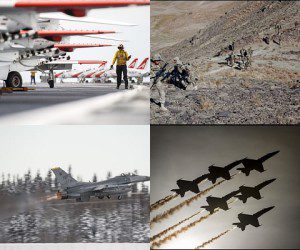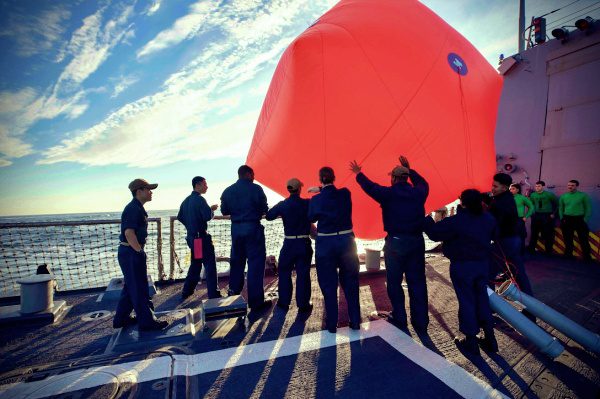Expert Assistance in a Military Trial
An expert assistant is someone detailed to the defense team
An expert assistant is someone detailed to the defense team to assist the accused and defense counsel during the investigative stage of the trial process, although expert assistance can be requested for any stage. In this sense, expert assistance issues are more like discovery issues than production issues. Expert assistants most commonly assist defense counsel in the evaluation of scientific or technical evidence that the government intends to offer at trial. Expert assistants can also be helpful in the areas of mitigation, member selection, evaluation of physical evidence, or in providing a psychological evaluation of the accused.
Even if the defense is successful in obtaining an expert assistant, that does not necessarily mean that that the defense will be entitled to have that assistant testify as an expert
witness. Ordinarily the two will merge but such merger is not automatic. The distinction matters, particularly with respect to privileges. If the defense successfully obtains expert assistance, then the expert becomes a part of the defense team. Therefore, communications between the expert and the defense counsel or the expert and the accused are privileged under M.R.E. 502. United States v. Turner, 28 M.J. 487 (C.M.A. 1989). The government may not interview a defense expert assistant without the approval of the defense counsel.
- Discovery and Expert Assistance under the UCMJ
- Appointment and Production of Expert Witnesses
- Discovery and trial advocacy
- Defense Discovery Responsibilities and Requests
- Disclosures or notices made upon government request (not based on reciprocity)
- Mandatory disclosure or notice requirements for defense counsel
- Disclosures made upon government requests (based on reciprocity)
- Discovery in the Military Justice system
- Government requests for discovery
- Mandatory disclosure or notice requirements for trial counsel
- Introduction to discovery in the military
- Duty to preserve evidence
- Enforcement
- Regulation of production of witness and evidence under the UCMJ
- Regulation of Discovery
- Protective and modifying orders
- Remedies for Nondisclosure
If defense lists the expert as a witness
However, once the defense lists the expert as a witness, the government is free to contact and interview the witness. United States v. Langston, 32 M.J. 894 (A.F.C.M.R 1991).

The limited right to expert assistance is guaranteed by the Due Process Clause, federal case law, and military case law, provided certain circumstances exist.
Ake v. Oklahoma , 470 U.S. 68 (1985). In a capital case, the accused asked for a court-appointed psychiatrist to assist with the defense. The trial court denied the request. The Supreme Court held when an indigent accused makes a showing that expert assistance is needed on a substantial issue in the case both during case-in-chief and at sentencing, Due Process requires that the government provide that assistance. United States v. Garries, 22 M.J. 288 (C.M.A. 1986). The court held that as a matter of military due process, service members are entitled to investigative or other expert assistance when necessary for an adequate defense, without regard to indigence.
Unlike the production of expert witnesses, the appointment of expert assistants does not have a source in the R.C.M.s. Requests. The defense is entitled to expert assistance if the services are necessary. Garries, 22 M.J. 288; United States v. Robinson , 39 M.J. 88 (C.M.A. 1994). The standard on appeal is abuse of discretion, tested for prejudice with something like a materiality standard: the findings were substantially swayed by the error or would have changed the evidentiary posture of the case. United States v. McAllister , 55 M.J. 270, 276 (2001)
In order to determine necessity, courts apply a two pronged test: “[T]he accused has the burden of establishing that a reasonable probability exists that an expert would be of assistance to the defense and that denial of expert assistance would result in a fundamentally unfair trial.” United States v. Freeman, 65 M.J. 451, 458 (C.A.A.F. 2006). The defense must show more than just a mere possibility that the expert would be of assistance. United States v. Lloyd , 69 M.J. 95 (2010) (the defense’s desire to “explore all possibilities” did not reach the “reasonable probability” threshold). Toward that first prong, courts use the three-pronged test adopted in United States v. Gonzalez , 39 M.J. 459, 461 (C.M.A. 1991).
Why is the expert assistance needed?
The issue must be central to the defense theory of the case. United States v. Lloyd , 69 M.J. 95 (2010). In Lloyd , the C.A.A.F. used the word “necessary” instead of “needed.”
- What would expert assistance accomplish for the accused?
- Why is the defense unable to gather and present the evidence that the expert assistant would be able to develop?
- Defense counsel are expected to educate themselves to attain competence in defending the issues in a particular case. United States v. Kelley , 39 M.J. 235, 238 (C.M.A. 1994).
The rapid growth in forensic science techniques at trial may make cases more complex than general practitioners can handle on their own. United States v. McAllister , 55 M.J. 270, 275 (2001); United States v. Warner , 62 M.J. 114, 118 (C.A.A.F. 2005). In United States v. Lee , 64 M.J. 213 (2006), CAAF commented on Warner and Article 46, saying that the playing field is uneven when the government benefits from scientific evidence and expert testimony and the defense is denied a necessary expert to prepare for and respond to the government’s expert.
Absent a showing that his case was unusual, when the government offered CID laboratory experts in a child sexual assault case, the military judge did not abuse his discretion when denying the request.United States v. Ndanyi , 45 M.J. 315 (C.A.A.F. 1996).
However, the military judge cannot deny a defense request for an expert assistant by telling the defense to use the government’s own expert to prepare for trial. United States v. Lee , 64 M.J. 213 (2006). Where the defense counsel had already tried 15-20 urinalysis cases; had previously worked with an expert assistant on two urinalysis cases; had telephonic access to an expert consultant during trial; knew of the appropriate sources in the field; and did not raise irregularities in the handling of the urine specimen, the military judge did not err in not requiring the physical presence of the expert assistant during trial. United States v. Kelley , 39 M.J. 235, 238 (C.M.A. 1994).
Adequate substitute.
The government cannot secure for itself the top expert in the field and then provide the defense with a generalist: “Article 46 is a clear statement of congressional intent against government exploitation of its opportunity to obtain an expert vastly superior to the defense’s.” United States v. Warner , 62 M.J. 114 (C.A.A.F. 2005). To do so violates the letter and spirit of Article 46. However, giving the defense a generalist but then having the government call a specialist in rebuttal is not per se unfair. United States v. Anderson , 68 M.J. 378 (C.A.A.F. 2010). The disparity must cause some prejudice to the accused.
Defense counsel may have to provide evidence that the favorable evidence they are seeking actually exists. United States v. Bresnahan , 62 M.J. 137 (C.A.A.F. 2005).
For cases involving requests for expert assistance in false confessions and interrogation techniques, see United States v. Bresnahan , 62 M.J. 137 (C.A.A.F 2005); United States v. Freeman, 65 M.J. 451 (C.A.A.F. 2008) (defense counsel may be capable of developing the skill in this area without expert assistance).

